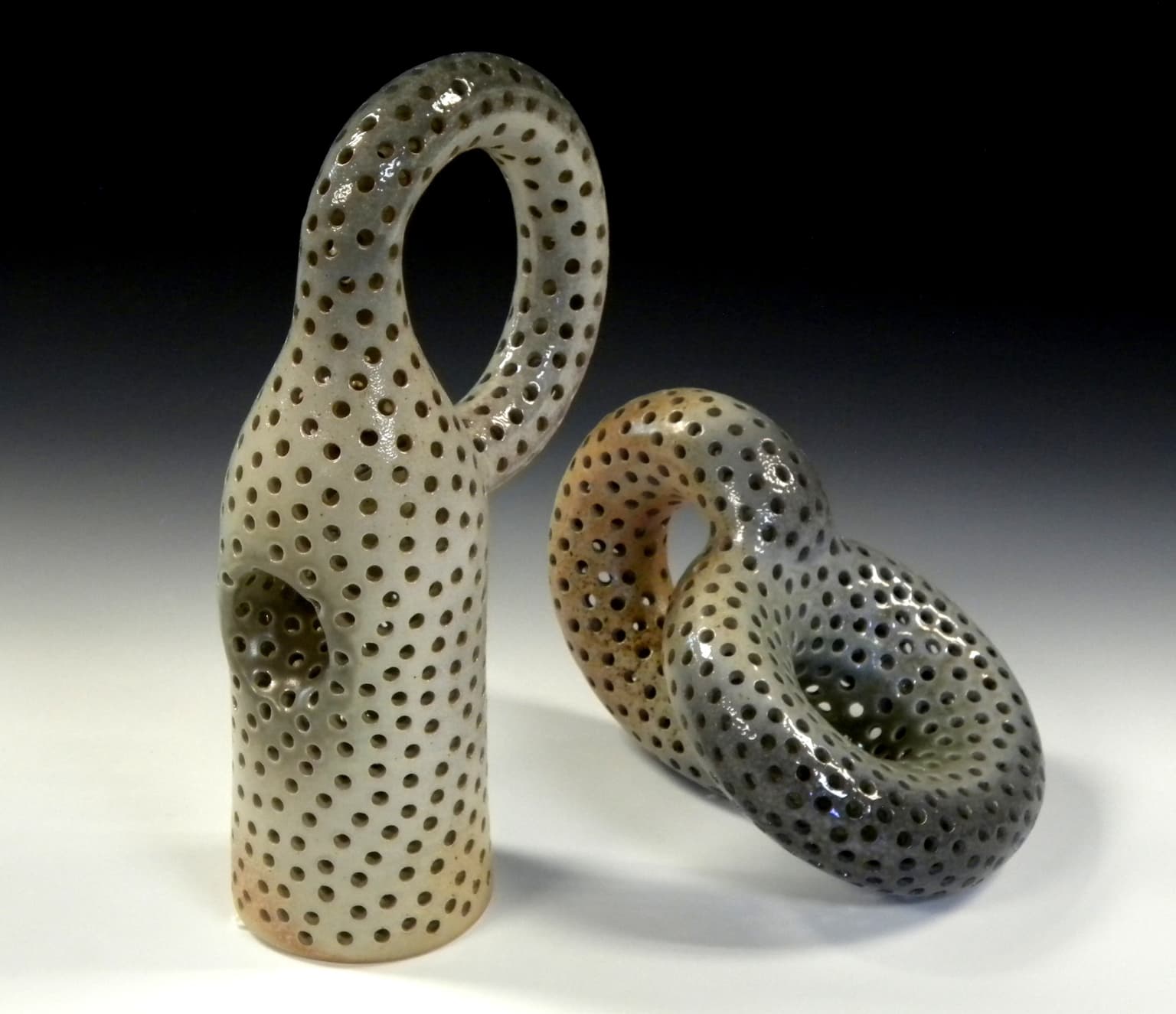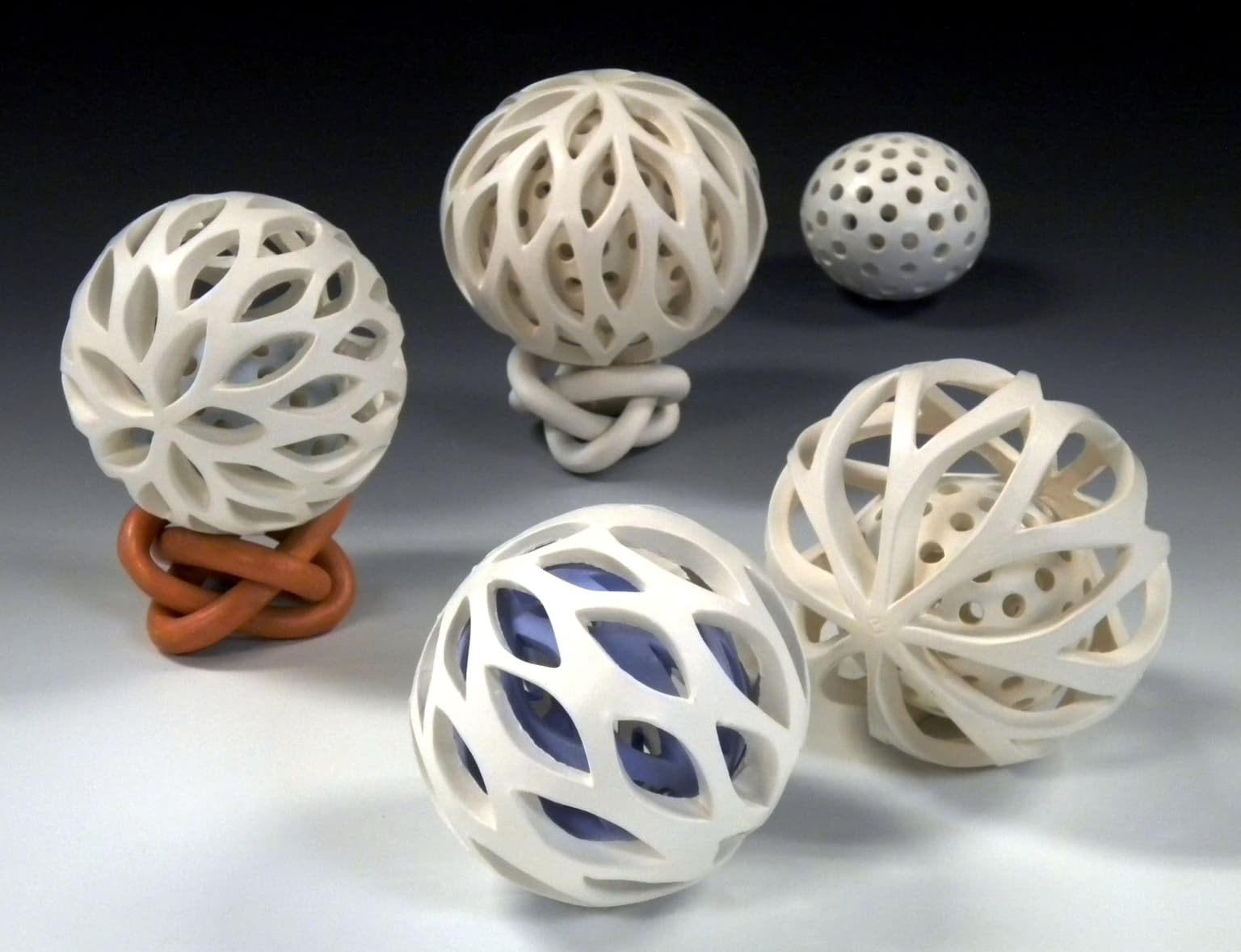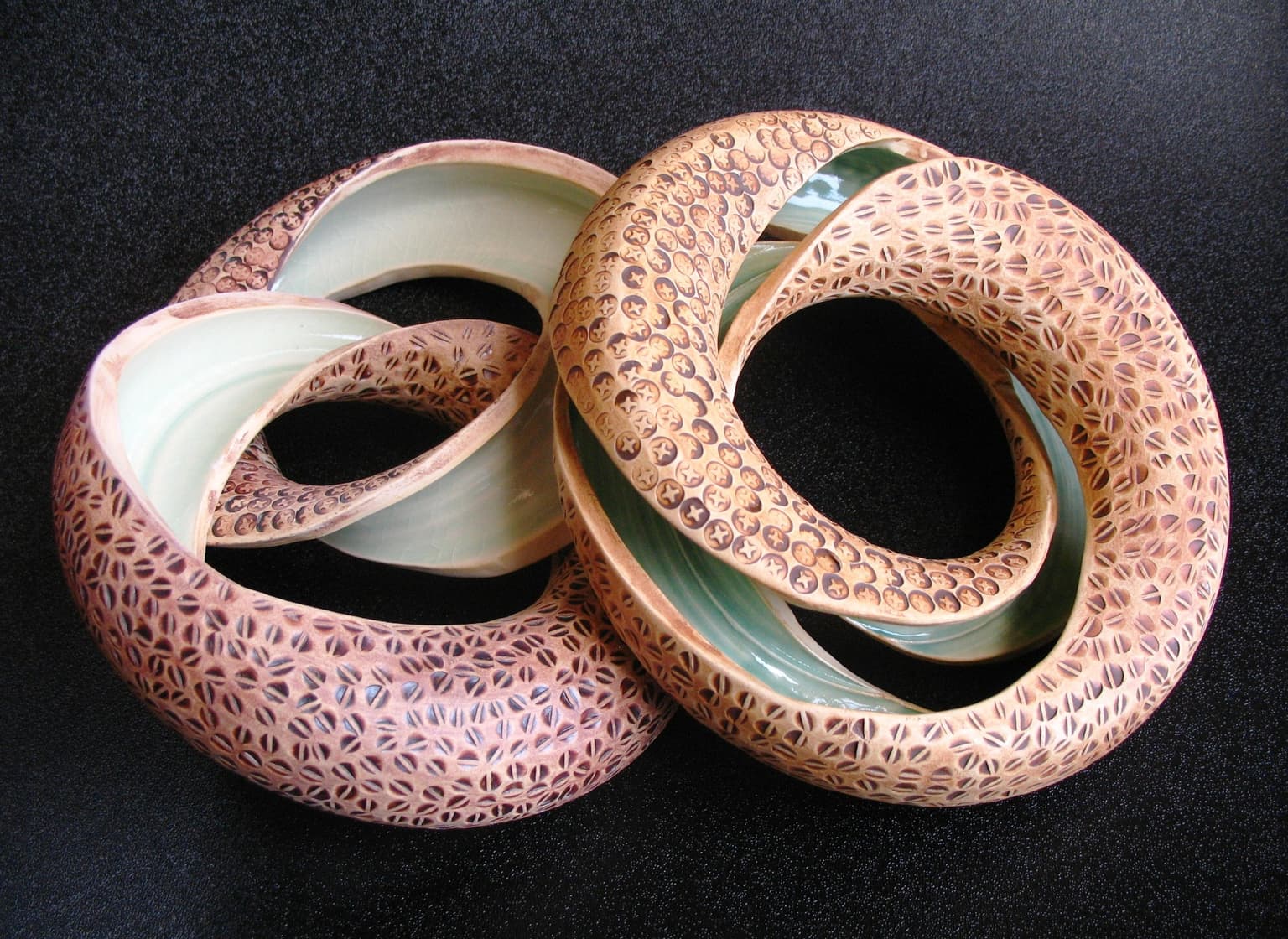Elizabeth Paley
Artists
Statement
A recovering academic with degrees in physics, astronomy, piano performance, and music theory, I took a beginning pottery class in 2002 and have been hooked ever since. My art typically begins with wheel-thrown pieces that I subsequently alter, cut, and assemble. While much of my work is traditionally functional, I have recently become interested in math-influenced forms and the design challenges they present.
Artworks

Klein Bottles
12 x 3.5 x 6 inches (left), 6 x 9 x 5 inches (right)
Wood-fired white stoneware
2010
This pair of Klein bottle models illustrates two different construction possibilities: bottle + torus + cone (left), and torus + torus (right). All components were thrown on a potter's wheel, then trimmed, cut, and nudged together. Feeling jealous of the transparency of Cliff Stoll's glass Klein bottles, I covered both forms with holes. After bisque firing, the bottles were fired in a wood-fueled kiln to cone 9-10 (~2330F), with soda ash added late in the process to give the bottles a glassy finish.

Nested Spheroids
Spheroids range from ~2 x 2.5 x 2.5 inches to ~3.5 x 4 x 4 inches
White stoneware
2011-2012
With the exception of the two hand-built Borromean-rings stands, all components in this collection of nested spheroids were wheel thrown. The inner balls were thrown, trimmed, carved, and brushed with terra sigillata (a suspension of very fine clay particles) and bisque fired. I then threw the outer spheroids, pausing roughly halfway to insert and enclose the inner balls, so that the spheroids were embedded within one another without slicing any of them in half. The outer balls were then trimmed, carved, brushed with terra sig, and fired to cone 06 (~1828F) in an electric kiln.

Interlocking Sliced Tori
1.5 x 6.5 x 6.5 inches each (when closed)
White stoneware
2011
After coming across George Hart's instructions for slicing bagels into linked halves, I tried a similar cut with wheel-thrown clay tori. After slicing, the exterior of each half was stamped with either a flat- or Phillips-head screw to suggest positive and negative charges. After bisque firing, the exterior surfaces were stained with patinas and the interior surfaces lined with glaze. The boxes were then fired to cone 6 (~2264F) in an electric kiln.